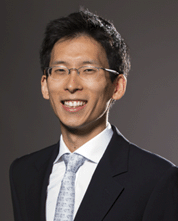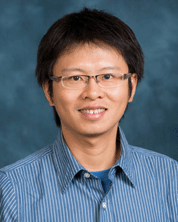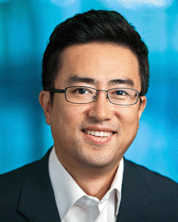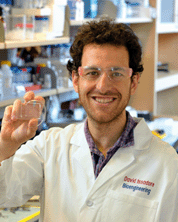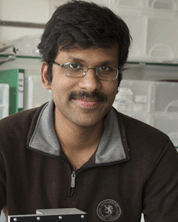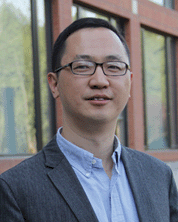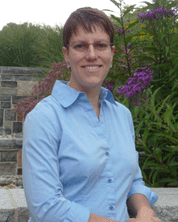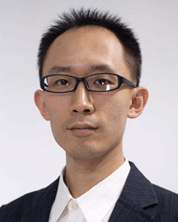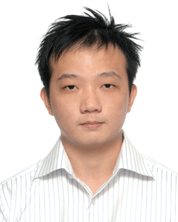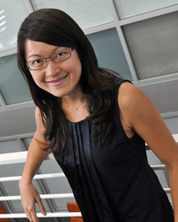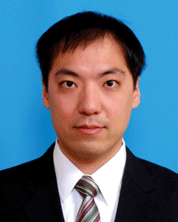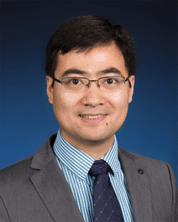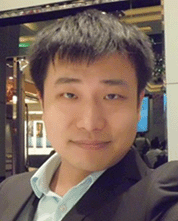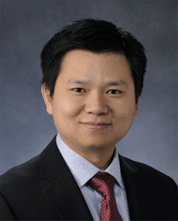DOI:
10.1039/C6LC90082H
(Profile)
Lab Chip, 2016,
16, 2977-2981
Contributors to Emerging Investigators 2016
Moran Bercovici joined Technion – Israel Institute of Technology in 2011. He is an Assistant Professor at the Faculty of Mechanical Engineering, and heads the Microfluidic Technologies Laboratory (http://microfluidics.technion.ac.il). His research focuses on the physics of microscale transport phenomena, with applications to life and medical sciences. He is the recipient of the 2015 ERC starting award from the European Research Council for his emerging research on flow patterning and fluid–structure interaction. Prof. Bercovici is also the recipient of the Krill Prize for Excellence in Scientific Research from the Wolf Foundation, and the Yanai Prize for Excellence in Academic Education. He received his BSc (2001) and MSc (2006) from the Faculty of Aerospace Engineering at Technion. Between 2001 and 2006 he was a Research Engineer at RAFAEL, working on experimental and computational aerodynamics. He received his PhD from Stanford University (2011), and spent a short postdoctoral period in the Department of Urology at Stanford School of Medicine before joining Technion. His work is currently supported by the European Research Council (ERC), the European Union (FP7, H2020), and the Israel Science Foundation.
Aram Chung is an Assistant Professor of Mechanical, Aerospace, and Nuclear Engineering at Rensselaer Polytechnic Institute (RPI) where he directs the Bio-Optofluidics lab. Professor Chung received his BS (2006) in Mechanical Engineering at Seoul National University (SNU) in Korea, followed by an MS (2009) and PhD (2011) in Mechanical Engineering at Cornell University under the supervision of Professor David Erickson. Before joining RPI in 2013, he was a postdoctoral researcher of Bioengineering at the University of California, Los Angeles (UCLA) under the guidance of Professor Dino Di Carlo. Among other honors and recognitions for his educational and research activities, he was awarded the 2016 Class of 1951 Outstanding Teaching Development Award, the 2013 UCLA Chancellor's Award for Postdoctoral Research, the Grand and the 1st Poster Prizes at ASME-IMECE in 2010 and 2009, the Silver Prize from the 2008 Samsung Human-Tech Thesis Contest, and the Best Poster Award at the CNF 30th Anniversary Symposium. He is also a recipient of the McMullen fellowship from Cornell University. His current research program focuses on the development of high-throughput microfluidic systems for 3D shaped microparticle manufacturing and quantitative single-cell analysis.
Nien-Tsu Huang is an assistant professor at the Graduate Institute of Biomedical Electronics and Bioinformatics and the Department of Electrical Engineering at National Taiwan University. He received his BS in Mechanical Engineering and MS in Applied Mechanics from National Taiwan University in 2003 and 2005, respectively. He received his PhD degree in Mechanical Engineering at the University of Michigan, Ann Arbor, in 2012. His research focuses on developing integrated microfluidics for whole blood processing and
in situ analyte detection, optofluidics for on-chip cellular manipulation and detection, single cell analysis, and label-free biosensing. He received a Study Abroad Scholarship from the Taiwan Ministry of Education in 2008 and the Predoctoral Fellowship from the Horace H. Rackham School of Graduate Studies at the University of Michigan in 2012.
‘Dan’ Dongeun Huh is an Assistant Professor and Wilf Family Term Endowed Chair in the Department of Bioengineering at the University of Pennsylvania. He received a BS in Mechanical Engineering from Seoul National University, Master's degrees in Biomedical Engineering and Mechanical Engineering, and a PhD in Biomedical Engineering from the University of Michigan. From 2007 to 2012, he was a postdoctoral fellow at Harvard Medical School and Harvard's Wyss Institute for Biologically Inspired Engineering. He is a pioneer of “organ-on-a-chip” technology, and his research group at Penn focuses on developing microengineered models of human anatomy and physiology for a wide variety of biomedical applications. Dr Huh has won several honors and awards including the Design of the Year Award from London Design Museum, the NIH Director's New Innovator Award, the Analytical Chemistry Young Innovator Award, TEDx Fellow, the NC3Rs Annual Award, the SLAS Innovation Award from the Society for Lab Automation and Screening, Scientific Breakthrough of the Year from the American Thoracic Society, Best Publication Award and Best Postdoctoral Award from the Society of Toxicology, the Wyss Technology Development Fellowship from Harvard, the Distinguished Achievement Award from Michigan, the Widmer Award from MicroTAS, and the Horace H. Rackham Predoctoral Fellowship.
David Issadore is an Assistant Professor of Bioengineering and Electrical and Systems Engineering at the University of Pennsylvania. His research focuses on the integration of microelectronics, microfluidics, nanomaterials and molecular targeting, and their application to medicine. This multidisciplinary approach enables Issadore's lab to explore new technologies to bring medical diagnostics from expensive, centralized facilities, directly to clinical and resource-limited settings for applications including early detection of pancreatic cancer, tuberculosis diagnosis in patients co-infected with HIV, and prognosis of traumatic brain injury. His academic background in electrical engineering and applied physics (PhD, Harvard 2009) and his research experience in a hospital research laboratory (MGH) have prepared him to work and collaborate effectively on these inherently cross-disciplinary problems.
Govind Kaigala is a Research Staff Member at IBM Research - Zurich. He joined IBM in 2010 where he is currently leading activities on liquid-based non-contact scanning technologies – microfluidic probes – and is championing new concepts on “microfluidics in the open space” and “tissue microprocessing”. With his team he is developing techniques for cell and tissue analysis with a particular focus towards unravelling multi-modal data from biopsies, driven by specific needs in pathology. His broader interests are in applying and leveraging micro/nano-technologies to realize tools and assays for chemical & biomolecule analysis. He is passionate about translational biomedical research, quantitative biology and personalized medicine. Prior to joining IBM, Dr Kaigala was a postdoctoral fellow in the microfluidics laboratory in Mechanical Engineering and Urology at Stanford University. He received his PhD and MEng from the University of Alberta, Canada. His work is supported by the European Research Council (ERC), the European Union, and the Swiss National Science Foundation. Dr Kaigala is the recipient of several awards, including the IBM Research Division Accomplishment Award and the Horizon Alumni Award.
Peng Liu received both his BEng degree in Environmental Engineering and MS degree in Biochemistry and Molecular Biology from Tsinghua University in 2000 and 2003, respectively. He then graduated from University of California, Berkeley with a PhD in Bioengineering in 2009. From 2010 to 2012, he completed his postdoctoral training at Sandia National Laboratories, USA. In 2012, Dr Liu joined the faculty at the Department of Biomedical Engineering, School of Medicine, Tsinghua University. Dr Liu's research interests include: 1) developing fully integrated microfluidic systems for point-of-care diagnosis and forensic short tandem repeat analysis; 2) developing high-throughput cell array platforms for cell manipulation, culture, and analysis.
John Oakey is an Assistant Professor in the Chemical Engineering Department and the Molecular and Cellular Life Sciences interdisciplinary graduate program at the University of Wyoming. He obtained his BS in Chemical Engineering at Penn State University and a PhD in Chemical Engineering from the Colorado School of Mines. His postdoctoral research in the Center for Engineering in Medicine at the Massachusetts General Hospital and Harvard Medical School focused upon developing diagnostic and therapeutic applications for microfluidic devices. His current research interests build upon themes of interfacial phenomena, multiphase flow and advanced materials fabrication to create platforms for both fundamental research and applied science. Applications range from microfabricated tissue scaffolds to the development of reactive transport models of multiphase flow. In 2013 he received the National Science Foundation Faculty Early Career Development award and he has been a Whitman Center Investigator at the Marine Biological Laboratory in Woods Hole, MA since 2014.
Sarah Perry is an Assistant Professor at the University of Massachusetts Amherst in the Department of Chemical Engineering. She is a member the Models to Medicine Center and the Center for Bioactive Delivery in the Institute for Applied Life Science, a member of the Chemistry–Biology Interface Program, and the Soft Materials for Life Sciences Program. Professor Perry received BS degrees in Chemical Engineering (2002) and Chemistry (2003), as well as a MS in Chemical Engineering (2005) from the University of Arizona, followed by a PhD (2010) in Chemical & Biomolecular Engineering from the University of Illinois at Urbana-Champaign under the supervision of Professor Paul J. A. Kenis. Before joining the faculty at the University of Massachusetts Amherst in 2014, she was a postdoctoral researcher at the University of California Berkeley and the new Institute for Molecular Engineering at the University of Chicago with Professor Matthew Tirrell. Professor Perry's research utilizes the self-assembly and molecular design of soft materials, coupled with microfluidic technologies and
in situ analysis methods to study and enable the realization of biomolecules to address real-world challenges. For her work, she has been awarded the Armstrong Fund for Science Award and an American Chemical Society Petroleum Research Fund Award.
Kangning Ren is an assistant professor in the Department of Chemistry at Hong Kong Baptist University. He received both his BS (2003) and PhD (2008) in Chemistry from Tsinghua University, where he developed lens-free imaging strategies for microchip analysis. After graduation, he received postdoctoral training at Hong Kong University of Science and Technology, focusing on microfabrication, biomaterials, microfluidics, and point-of-care analysis, where he developed whole-Teflon chips as an important new type of microfluidic devices. From 2011 to 2014, he worked as a postdoctoral researcher in Prof. Richard N. Zare's group and was a fellow of the Stanford SPARK program at Stanford University. There he continued his research on biomaterials and microfluidics, and further extended his research to point-of-care diagnosis and food safety tests. In 2014, he joined HKBU as an assistant professor. His current research interests include microfabrication of perfluoropolymers and related applications, as well as novel methods/chip materials for on-chip analysis, such as drug efficacy and toxicity tests.
Say Hwa Tan is a Griffith University Post-Doctoral Fellow in Queensland Micro-and Nanotechnology Centre, Griffith University, Australia. He graduated with both Bachelor’s and Master’s degrees in Mechanical Engineering from Nanyang Technological University in 2008 and 2010, respectively. He received his PhD degree in 2014 from the Georg-August-Universität Göttingen and Max Planck Institute for Dynamics and Self-organization (MPI-DS), Germany. During his doctorate research, he developed and patented a new technology to actively control the size of microdroplets formed using an AC electric field. A microfluidic Jukebox was also developed using the technology to allow an acoustic interpretation on droplet microfluidics. This work was featured in various media and was awarded the Tan Kah Kee Young Inventor Award in 2014. He was interviewed by the Singapore MediaCorp Channel 8 Focus program for his outstanding scientific achievements. For his academic excellence, Dr Tan won the prestigious Tan Kah Kee Postgraduate award in 2012 from the seventh President of Singapore, Dr Tony Tan Keng Yam. Dr Tan has published over 20 journal papers, 2 patents and 1 book chapter on microfluidics. His research has pioneered different approaches to manipulate droplets and bubbles using thermal, magnetic, acoustic and electric energy.
Sindy K. Y. Tang joined the faculty of Stanford University in September 2011 as an assistant professor in the Department of Mechanical Engineering. She received her PhD from Harvard University in Engineering Sciences under the supervision of Prof. George Whitesides. Her lab at Stanford works on the fundamental understanding of fluid mechanics and mass transport in microfluidic systems, and the application of this knowledge towards problems in biology, health and environmental sustainability. The current areas of focus include the hydrodynamics of concentrated emulsions in confinements, interfacial mass transport and self-assembly, and ultrahigh throughput optofluidic systems for applications in biochemical sensing and diagnostics, water and energy sustainability, and single-cell wound healing. Dr Tang's work has been recognized by multiple awards including the NSF CAREER Award, the 3 M Nontenured Faculty Award, and the ACS Petroleum Fund New Investigator Award.
Rikiya Watanabe is a Lecturer at the University of Tokyo, and PRESTO researcher at Japan Science and Technology Agency. He received his BS from Waseda University in 2004, MS from the University of Tokyo in 2006, and a PhD in single molecule biophysics from Osaka University in 2009. Thereafter, he worked as a postdoctoral fellow at ISIR, Osaka University, before joining the University of Tokyo as an Assistant Professor in 2011. His research interests are focused on elucidating the mechanisms conserved among biomolecular machines, mainly through the development of novel single-molecule techniques, including microsystems fabricated at micro- or nano-scales. His current work focuses on membrane transporters as promising drug targets. The versatility of single-molecule techniques is extensible for further analytical and pharmacological applications such as drug screening.
Jie Xu is an assistant professor of Mechanical Engineering and an adjunct professor of Bioengineering at the University of Illinois at Chicago. He received his Bachelor’s degree (2005) in Thermal Engineering from Tsinghua University in Beijing and his PhD degree (2010) in Mechanical Engineering from Columbia University in the City of New York. Before joining UIC, Dr Xu was an assistant professor at Washington State University Vancouver (2010–2014). Dr Xu has authored more than 100 journal and conference publications. He is a DARPA Young Faculty Awardee, a National New Face of Engineering, and a member of the Global Young Academy. Dr Xu's Microfluidics Laboratory at UIC aims at understanding micro interfacial sciences and building novel micro/nanofluidic systems for energy, health and the environment.
Yi Yang received his PhD degree from School of Physics, Wuhan University in 2008. Currently, he is a Professor in Wuhan University. He specializes in the research field of optofluidics. He innovates new designs of on-chip transformation optical waveguides, dye lasers, and flow cytometers integrated with different microfluidic functionalities such as particle sorting, optical trapping
etc. He has published 14 journal papers including publications in prestigious journals like
Nature Communications and
Lab on a Chip, as well as 10 top international conference papers. Dr Yi Yang was awarded the Thousand Youth Talents award in 2013 and he also worked as a Guest Editor of the
Lab on a Chip themed collection on Optofluidics.
Yong Zeng is an assistant professor of Chemistry and affiliated faculty with the Bioengineering Graduate Program at the University of Kansas. He is also a full member of the KU Cancer Center. Dr Zeng received his BSc from Wuhan University, China and PhD in Chemistry from the University of Alberta, Canada with Jed Harrison in 2007. His graduate studies were focused on nanomaterial self-assembly, biomolecular separation and proteomics using microfluidic technologies. He completed his postdoctoral training with Richard Mathies at the University of California, Berkeley, where he developed microfluidic single cell analysis technologies for sensitive quantification and high-throughput single-cell sequencing of early-stage carcinogenic mutations in blood cancer. Dr Zeng started his independent career at the KU in 2012 and his interdisciplinary research lies at the nexus of chemistry, nanomaterials, biomedical sciences, and bioengineering. A primary goal of his research is to develop new enabling micro- and nanoscale technologies for sensitive and quantitative measurements of complex biological systems. He is also interested in translational research to move technology innovations into clinical care, aiming to facilitate early diagnosis and precision treatment of diseases, including cancer. His research is currently funded by National Institutes of Health and other funding agencies.
Zhi Zhu received her Bachelor’s degree in chemistry from Peking University (China) in 2006 and her PhD in analytical chemistry from the University of Florida (USA) in 2011. She joined Xiamen University (China) as an Assistant Professor in 2011 and was promoted to Associate Professor in 2012 and Professor in 2015. She won an American Chemical Society DAC Graduate Fellowship in 2009, a Chinese Government Award for Outstanding Students Abroad in 2010 and a Chinese National Excellent Young Investigator Award in 2014. Her current research is particularly focused on molecular recognition, microfluidics and point-of-care testing.
Roseanna N. Zia is an Assistant Professor of Chemical and Biomolecular Engineering and a Morgan Sesquicentennial Faculty Fellow at Cornell University. She received her PhD from the California Institute of Technology in Mechanical Engineering in 2011, studying the theory of colloidal hydrodynamics and suspension mechanics with Professor John F. Brady, followed by postdoctoral research in colloidal gels at Princeton University with Professor William B. Russel. She earned a BSME from the University of Missouri. Dr Zia's work focuses on the development of predictive theory to elucidate the micro-mechanical underpinnings of macroscopic behaviors of soft matter, with a focus on non-equilibrium systems spanning fluid to networked to glassy, and on confinement effects and arrested states. Current study includes yield stress behavior of gels; models for intracellular transport; the colloidal glass transition; and non-equilibrum fluctuation-dissipation theory. Zia began her faculty career at Cornell in January 2013. She has since received the NSF BRIGE Award (2013), NSF CAREER Award (2013), and ONR Young Investigator award (2014). She was selected for the National Academy of Engineering Frontiers in Engineering, and the Cornell Sonny Yau ('72) Teaching Award. Her research on fluctuation dissipation in non-equilibrium complex fluids earned the 2012 Journal of Rheology Publication Award.
|
| This journal is © The Royal Society of Chemistry 2016 |
Click here to see how this site uses Cookies. View our privacy policy here. 

